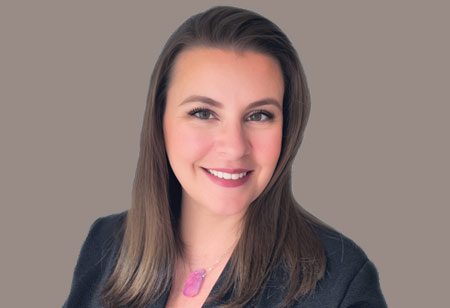Thank you for Subscribing to Healthcare Business Review Weekly Brief

The Human Element in Medical Billing and Revenue Cycle
Healthcare Business Review
Through this article, Olivia Wolf emphasizes the importance of integrating human values into healthcare administration. Despite advancements in AI, she argues that the essence of healthcare remains deeply personal and should be reflected in every aspect of its business operations. Wolf advocates for a more human-centric approach to revenue cycle management, highlighting that medical coders and billers play a crucial role in translating medical documentation into the language required by insurers. She stresses the need for continuous education and appreciation of the work done by these teams, which directly impacts the quality of care patients receive.
Reflecting on my journey as a healthcare executive over the last 20+ years and looking at current trends across all areas of our healthcare system, I often come back to the need to return humanity to healthcare. This idea—when discussed—is usually in the context of clinical operations and the delivery of care. Today, I want us to consider how the return of humanity can be thought of in the context of the business of healthcare, specifically in our revenue cycle operations.
I have long rejected the idea that ‘it’s not personal, it’s business.’ Healthcare leadership needs to remember that it is both personal and business. This is true not only because healthcare is a humanities-based profession but because our workforce consists of people. I don’t believe the emergence of AI will ever entirely remove the human element of medicine. In fact, I believe people will best leverage AI, and the rise of AI should be the cause of an even more concentrated focus on the humanities. Connecting on a human level and elevating the meaning behind our work is as important as the work itself, if not more so.
Language is a vital part of the human connection. It shapes everyday life, communication and culture. I often market revenue cycle as an art of language. Medical coders are in the business of interpreting the language of a medical note into the numbers required by insurance carriers. Medical billers aid in this language interpretation by not just recovering the revenue associated with claims that result from documentation and coding but perfecting it through the nuances of additional guidelines and regulations, which vary widely by the payer. Viewing the revenue cycle through the language arts is just one way to bring meaning to the often rote and technical work of financial operations.
Investing in the initial and ongoing education of medical billing teams and reminding them of the value of their work, not just what they do but why they do it, will reap long-term benefits in quality of work, employee satisfaction and staff retention.
Behind every claim, visit note, diagnosis and CPT code is a patient who is enduring hardship. Recognizing this human element helps us remain connected to our mission and provides meaningful service to those we support.
In the same way, we as leaders must remain human-centric in our approach to those we lead, so would our staff benefit from remembering that behind every claim, every visit note, every diagnosis and CPT code, is a fellow human being who is suffering to some degree and even we in the ‘back office’ are in service of those people.
The highest percentage in the last 20 years—33 percent—of patients report delaying treatment due to cost. Efficient upstream collection of demographics, insurance information and accurate, coding, billing and quick recovery of revenue and resolution of claims doesn’t just serve the financial health of our organizations. It allows patients to focus their energy on their care and recovery therefore alleviating much of the administrative burden of the financial ramifications of seeking care.
Looking at the overall healthcare landscape, social determinants of health are taking center stage. The financial health of our patients as a social determinant of health is often lost in the clinical focus. Thinking of our role in financial operations as a contribution to the health and care of our patients is another guiding purpose for our work in the business of healthcare.
Healthcare is a rapidly changing environment, with technology, rules and regulations evolving at a pace that is often overwhelming to keep up with. The call to action for leadership not only to invest in the development of our workforce as humans and provide the resources to keep up with changes, but also build a solid foundation on leadership and operational principles that withstand the test of time and provide stability in an environment of shifting sand. A strong focus on humanity, on our organization’s ‘why’ and on living our values, are the bedrock of the anchor that will keep us both grounded and moving forward.









